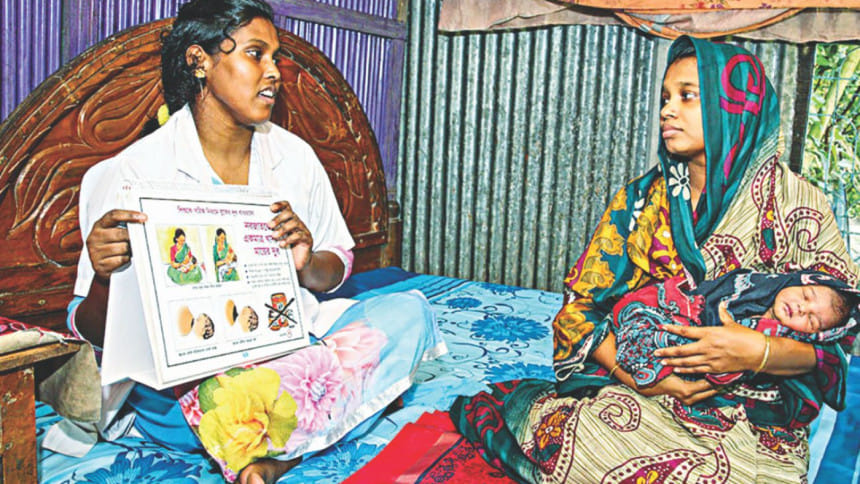Quality healthcare for all: The next frontier for Bangladesh

It is widely recognised that the healthcare seeking in Bangladesh is rapidly changing for the better, triggered by improvement in economic status, education and communication network and transport. The country has made significant gain in improving access to maternal, newborn and child health services, as indicated by the consistent improvement in the coverage rates for many of the health service indicators.
While a vast majority of the population depends on private health providers and hospitals, the government facilities continue to play a very important role in meeting the healthcare need of a large segment of the population. It is high time that the country made deliberate efforts to meet the minimum acceptable standard of care provided by the government and private health facilities across the country. For, the mere expansion of services without the explicit strategies for ensuring quality may prove to be a wastage of scarce resources.
Bangladesh's commitment to join the movement towards universal health coverage also demands that the country should take definitive steps for guaranteeing minimum level of quality in healthcare.
Healthcare services need to be focused not only on the outcome of treatment but also on the positive experiences of the user — effective and respectful. For maternal, newborn and child health, this would mean a continuum of care approach linking home and community-based services with the primary, secondary and tertiary level facilities. In addition, the healthcare providers need to be competent and well-equipped to deliver the care as per the expected standard and ensuring a positive experience for the users. Such care can also help to rebuild the trust and confidence of people in the health system and further enhance the utilisation of health services.
It is imperative that the foundations of the health system be strengthened to focus on improved quality of healthcare in the public and private domains. This requires strong leadership at all levels, an appropriate organisation of healthcare delivery platforms, skilled and motivated health workforce, health supplies and technologies, reliable and user-friendly data on quality of care.
The recent assessments on the readiness of health facilities, both public and private, raises many concern about their preparedness to ensure the minimum level of quality. The education of healthcare professionals in the country, in addition to the technical competencies, need to pay special attention to ethical, patient-centred and compassionate care.
The regulatory system in the country fall short of the expectations in terms of enforcing accountability for quality. Lastly, people everywhere need to be capacitated to ask for effective and respectful care, irrespective of their ability to pay. There has to be a sense of urgency across all spheres of the health system in Bangladesh to take decisive steps to fill the glaring gaps in the quality of healthcare delivered in the country.
The author is the Chief of Party for USAID's MaMoni Maternal and Newborn Care Strengthening Project implemented by Save the Children in Bangladesh. E-mail: [email protected]
The views expressed are personal and do not necessarily reflect the views of Save the Children, USAID or the United States Government.

 For all latest news, follow The Daily Star's Google News channel.
For all latest news, follow The Daily Star's Google News channel. 



Comments